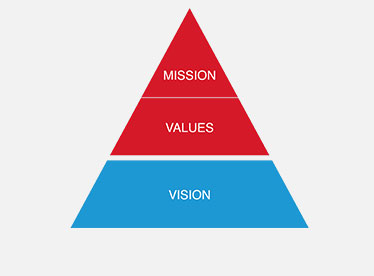-
Products
-
Transportation & Mobility Solutions
Transportation & Mobility Solutions
At Hitachi, we engineer industry-leading transportation and mobility solutions by leveraging decades of knowledge and using high-quality automotive material and components.
-
Energy Solutions
Energy Solutions
We believe the only solution for fulfilling the growing power requirements of industries and society is through a comprehensive portfolio of sustainable energy solutions and delivering innovative high-efficiency energy systems.
-
IT Infrastructure Services
IT Infrastructure Services
Hitachi’s state-of-the-art IT products and services are known to streamline business processes which result in better productivity and a higher return on investment (ROI).
-
Social Infrastructure: Industrial Products
Social Infrastructure: Industrial Products
Within the industrial sector, Hitachi is consistently delivering superior components and services, including industrial and automation solutions, useful in manufacturing facilities.
-
Healthcare & Life Sciences
Healthcare & Life Sciences
At Hitachi, we believe that healthcare innovation is crucial to a society’s advancement. A strong healthcare sector is often considered an inseparable element of a developed society.
-
Scientific Research & Laboratory Equipments
Scientific Research & Laboratory Equipments
Hitachi focuses on extensive research and development, transformative technology, and systems innovation to unfold new possibilities and create new value through scientific endeavors that strengthen the connection between science and social progress.
-
Smart Audio Visual Products
Smart Audio Visual Products
Since 1956, Hitachi audio visual products have provided state of the art solutions to consumers all over the world. It has been our pleasure to design competitive products at the lowest possible prices while maintaining our industry-leading quality standards for your comfort and enjoyment.
-
View All Products
Hitachi Products & Solutions
Hitachi, a technology leader in the U.S., offers a diverse set of products and solutions, and breakthrough technologies for smart manufacturing, green energy and mobility solutions that empower governments, businesses, and communities.
-
Transportation & Mobility Solutions
- Social Innovation Solutions
-
About Us
-
Hitachi in the U.S.A.
Hitachi in the U.S.A.
Discover information about the Hitachi group network across the Americas, upcoming events and sustainability endeavours, CSR policies, and corporate government relations.
-
About Hitachi Group
About Hitachi Group
Explore our leadership team, investor relations, environmental vision, and sustainability goals. Learn how Hitachi is leveraging its research & development capabilities for social innovation across industry verticals.
-
Hitachi in the U.S.A.
- News Releases
- Case Studies
- Careers
- R&D
Hitachi forms strategic research collaboration with Mass General Brigham in the field of regenerative medicine and GCT
Harnessing its automated cell culturing and digital technology to overcome intractable diseases
Tokyo, 6 July 2023 – Hitachi, Ltd. (TSE: 6501, “Hitachi”) announced that it has entered a strategic framework collaboration agreement with the world-renowned medical research institution, Brigham and Women’s Hospital (BWH), a founding member of the Mass General Brigham healthcare system and a teaching affiliate of the Harvard Medical School,*1 on 29 June, to establish a joint site for “co-creation” to accelerate efforts in gene and cell therapy (GCT) to conquer intractable diseases and realize practical applications.
*1 https://innovation.massgeneralbrigham.org/about/about-mass-general-brigham
Outline of the joint research
By working with BWH researchers at the Mass General Brigham Gene and Cell Therapy Institute (GCTI), Hitachi will support the development of cellular models relating to various diseases. For example, the therapeutic efficacy of CAR-T*2 cells which are thought to recognize and attack cancer cells can only be decisively confirmed through in-human clinical trials. Therefore, it is important to first establish a disease “model” to accurately predict the clinical safety and efficacy of the therapy by studying the behavior of CAR-T cells on cancer cells cultivated in a laboratory environment. The goal is to develop new disease models through this joint research and contribute to increasing the scope of GCT application to various diseases.
Hitachi will also contribute to the advancement of GCT through cell culturing and the development of the culturing process required in GCT by bringing research achievements and business experience in the field of regenerative medicine and GCT. In addition, Hitachi is developing a highly efficient technique to create genetically modified cells for GCT, and from this collaboration framework will look to apply this technology in the development of new therapy with researchers and pharmaceutical companies in the US and worldwide.
*2 CAR-T cells: Chimeric Antigen Receptor T-cell. T cells are a type of white blood cell (lymphocyte) that plays a crucial role in the immune system by attacking “foreign” bodies. In CAR-T cells, the T cells that have been genetically modified to express a chimeric antigen receptor on their surface that recognizes and attaches itself to specific proteins or antigens, especially those present on cancer cells. The use of CAR-T cells was first approved in the US in 2017 after it was shown to be highly effective in the treatment of B-cell acute lymphoblastic leukemia and malignant lymphoma. The treatment involves the modification of T-cells collected from the peripheral blood of the patient, culturing the CAR-T cells to increase their number and re-introducing them into the patient’s body.
Roger Hajjar, M.D., head of the Mass General Brigham GCTI, commented, “We welcome Hitachi as our first industry collaborator and are looking forward to working together to accelerate the development and early commercialization of GCT using Hitachi’s novel platform.”
Mass General Brigham is a world-leading eco-system for GCT research and clinical trials, with over 400 researchers working on ground-breaking gene and cell therapy research and treatment in pursuit of potential cures.
Hitachi has a strong track record in the healthcare area, driving innovation and delivering comprehensive solutions. Under its Mid-term Management Plan 2024, Hitachi remains committed to driving radical innovation based on back casting from 2050 to realize an environmentally neutral society where people can enjoy longevity in a comfortable and active way, and where humans and digital technology can evolve together. GCT research is one key initiative in this pursuit. Hitachi will leverage its diverse technology portfolio which includes automated cell culturing technology and digital technology to contribute to the practical application of new treatments pioneered by MGB.
Background
GCT is a form of treatment delivering specific target genes or genetically-modified cells related to a disease, and is expected to be applicable to a wide range of difficult to treat diseases such as certain types of cancers, cardiovascular, pulmonary, musculo-skeletal, neurodegenerative and autoimmune diseases, and rare diseases.
From an early stage, Mass General Brigham has been actively engaged in GCT research, creating GCTI in December 2022.*3 GCTI is establishing an organization and research environment to accelerate the discovery and creation of new medical and biological seeds that will lead to the development of novel therapies. Mass General Brigham aims to conduct clinical trials in its affiliated hospitals to develop and commercialize the new life-changing therapies and is recruiting leading scientists conducting cutting-edge projects from around the world as well as establishing an industry-academia ecosystem to support this.
Hitachi has actively promoted open innovation, participating in a national project to collaborate with academia and pharmaceutical companies*4 to ensure that regenerative medicine and GCT will become available to all those in need, and has worked to develop its closed-system aseptic automated cell culture technology. In 2019, they successfully launched the automated cell culture system and delivered it to Sumitomo Dainippon Pharma Co., Ltd.’s cell manufacturing plant for induced pluripotent stem (iPS) cells for iPS cell-based therapies. In 2020, Hitachi’s equipment was used for the first time in clinical studies when Sumitomo Dainippon Pharma Co., Ltd. was selected to supply the iPS cell-derived dopamine neural precursors for transplantation in the Kyoto University-led clinical trials to develop treatment for Parkinson’s disease using regenerative medicine.
*4 New Energy and Industrial Technology Development Organization (NEDO) "Fundamental Technology Research Promotion Project", Cabinet Office "Funding Program for World-Leading Innovative R&D on Science and Technology (FIRST)," MEXT "Program for Formation of Innovation Center for Advanced Interdisciplinary Fields under the Innovation System Development Project", Japan Agency for Medical Research and Development (AMED), "Development of Evaluation Basic Technology for Industrialization of Regenerative Medicine," etc.






